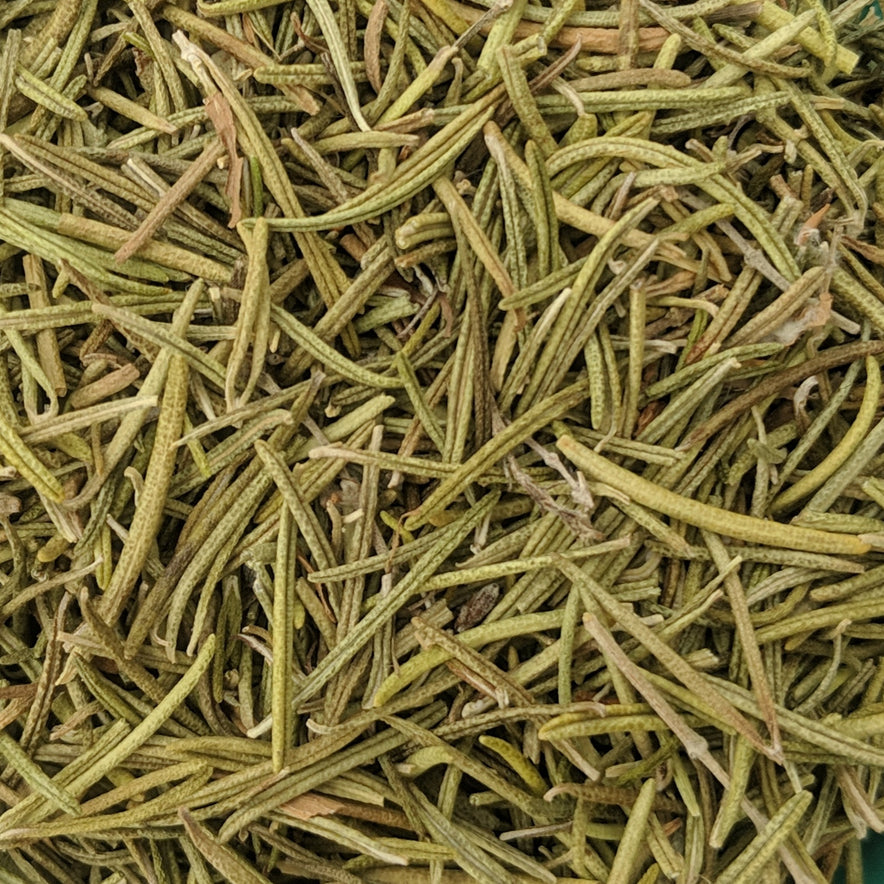
Cretan Rosemary | Organic (Rosmarinus Officinalis)
Rosemary is a plant that grows on the Rosmarinus Officinalis / Salvia Rosmarinus, an evergreen shrub (formerly Rosmarinus Officinalis). The herb is unique to Greece and the rest of the Mediterranean, and it may be found in hilly and coastal places across Crete, the Peloponnese, Evia, and other Greek islands.
The Latin name "Rosmarinus officinalis" means "sea dew" or "sea rose," and it was thought to be a gift from the goddess Aphrodite by the ancient Greeks.
This plant has been used in folk medicine for generations, with claims of treatment for a variety of symptoms and ailments including dysmenorrhea, mental decline, epilepsy, pain alleviation, and infertility.
According to new studies, rosemary can help with digestive health, mental clarity, hair and skin health, relaxation, and more.
Because of its high antioxidant content, rosemary can help combat free radical damage and oxidative stress while also supporting the immune system. It's also recognized for promoting good blood circulation and fighting inflammation.
Rosemary is a "cognitive stimulant," which means it might help you feel more alert and concentrated. Compounds found in rosemary have also been demonstrated to aid memory and cognitive performance in several studies. Furthermore, rosemary's uplifting and invigorating fragrance has been associated with improved moods, reduced sleepiness, and lowered stress levels, including its potential to lower the release of the "stress hormone" cortisol.
In certain circumstances, rosemary extracts are utilized as food preservatives because they can inhibit the growth of germs. The scent of rosemary is also a natural bug repellent, and it may help to avoid some insect bites, such as those from ticks and other bugs that can transfer diseases and viruses.
Rosemary has been linked to metabolic advantages, such as lowering blood sugar and improving insulin sensitivity. It is suggested for persons who want to lower their blood sugar levels.
Use
It's most commonly used in the kitchen to add earthiness and other flavors to meals. It may also be used to make herbal teas, candles, fragrances, hair care products, and other therapeutic and domestic items.
This plant contains a strong aroma and flavor, as well as antioxidants, volatile oils, and other protective phytochemical substances. The flavor of rosemary is characterized as warm and bitter.
The rosemary plant is a popular culinary spice all over the world, and it's one of the most important elements in Cretan cooking. It is used to season meats in European and Middle Eastern cuisines. It's commonly used in lamb, pig, turkey, and chicken marinades. In India, rosemary leaves are used in soups and drinks for their taste and nutritional value. In several European nations, it's also used in stews, casseroles, fish, potatoes, salads, pasta, and bread. It goes well with cereals, mushrooms, onions, peas, and spinach, among other things.
Notes
◉ Should be stored in airtight glass containers -in a cool, dark, and dry place- to preserve the flavor, texture, and properties.
